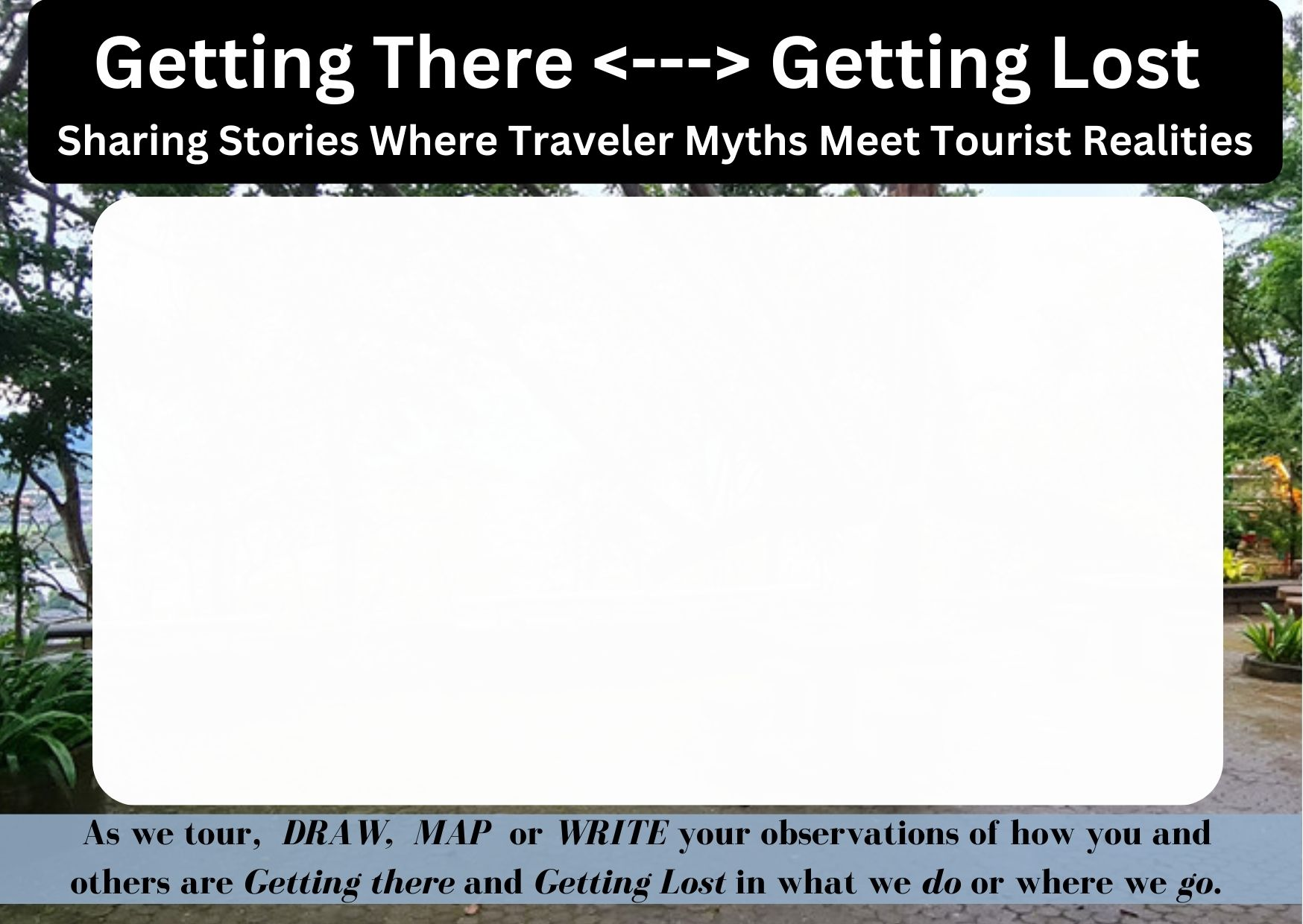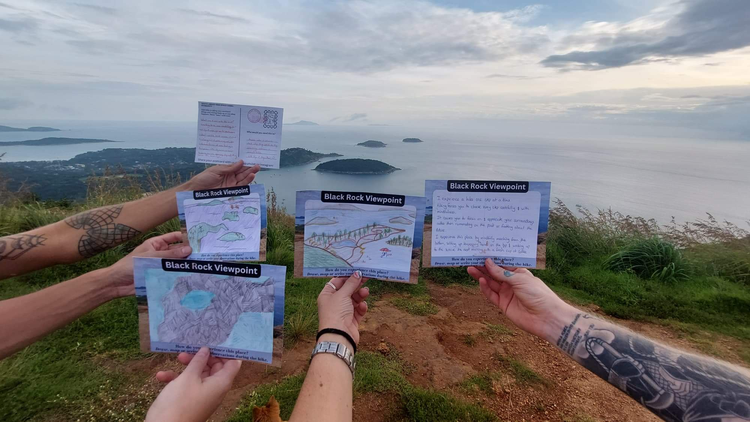Understanding Phuket
from afar:
- Public Spaces in Phuket
- Current Arts in Public Space
References
Reimagining Tourist Practices and Building Artistic Communities in Phuket through Magical Realist Artistic Practice
This project is conducted in Phuket Thailand and investigates the role magical realist storytelling can play in disrupting current mass tourism trends to encourage tourists to practice intimate and self-actualizing encounters. Through the course of research, into critical tourism, arts in public space in Thailand, or magical realism there is a common articulation to create ripples of small dialogues around our local and global realities and how those interventions, which are specific in locality or scope, can have much larger reach and implications. In turn, this adds to the generation of common knowledge and new artistic connections and networks.
This project investigates magical realist methodologies of writing, touring, imagining, and sharing stories, and aims to educate tourists to engage in more intimate and self-actualizing practices in Phuket, through chance encounters in public space. Participants tour public spaces, "getting there" and "getting lost" in writing exercises, sharing magical realist stories, and challenging themselves, in a playful and imaginative way, to do some critical thinking and imagine their own unique story and view/point.
On this island that is highly driven by mass tourism and commercialism, how can we write and share stories that lead to connective, engaging, and sustainable traveler practices?
Keywords: Magical Realism, Critical Tourism, Storytelling, Writing Practice, Public Space
'Despite being ”unreal” the stories are no less real in how we experience them or in their ability to affect us."
-Amitha Amranand (Thai Theatre Critic)
Research Question:
What strategies of writing and sharing stories of magical realism, can educate tourists to critically reflect on their traveling choices and encourage them to transform touristic places into more public spaces to practice intimate and self-actualizing encounters?
'Tourism is also a form of cultural practice that takes part in the formation of meaning. In this sense a ‘critical tourist’ would be a tourist who is conscious of his/her agency and, rejects the mode of fault-finding or judgement in favour of ‘active and complex relations with their whole situation and context’
Michel de Certeau’s The Practice of Everyday Life

